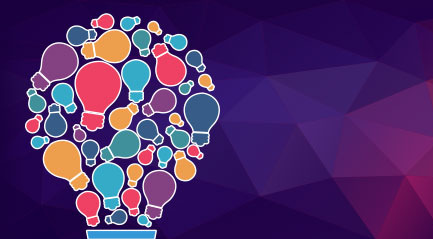Dr. Philip Payne (the director of the I2) and I are pleased to announce a new competition for bioinformatics trainees. The full announcement and details can be found here and application is here.
Teams will compete with each other to produce educational modules designed teach core concepts in bioinformatics. Top teams will be invited to present their work at the AMIA 2017 Joint Summits Meeting (March 27 – 30, 2017, San Francisco). The efforts of all teams will be made available under an open source license. In this way, we hope to create a lasting and useful educational contribution to the field with this effort.
Deadline: Sign up to participate in the DataEd Hackaton byJanuary 9, 2017.
DataEd Hackathon Call for Participation
All submissions to this Hackathon will be made available for use by the broad Biomedical Informatics community, via the AMIA website, using a Creative Commons licensing model. Winning teams will be provided with prizes commensurate with their standing in the competition.
Participating teams need to construct educational modules that focus on developing practical skills needed for the use of open data for discovery science purposes. The specific use case will use for the 2017 event is the replication of findings reported by Hedenfalk et al (2001) and Simon et al (2003), which claim to define important genetic biomarkers in breast cancer that define patient groups, using more recent publicly available molecular data from one or more publically available data resources.
Responsive educational modules will consist of the following components:
- A curricular framework, showing the structure of the module, commensurate with three to four 1-hour lessons;
- For each lesson, specific learning objectives should be clearly identified;
- Didactic content for each lesson should be sufficient to teach the objectives to college level students, and can include set of readings, video lectures (no more than 15 minutes per lecture), simulations, and/or tutorials;
- Each lesson should include a project: data with clear provenance, and clear instructions for students to apply principles, and scaffolding code as required;
- A set of competency based examination questions that demonstrate mastery of content associated with items 2-5; and
- Response or grading criteria related to items 4 and 5.
In order to ensure consistency and comparability of educational modules developed via this Hackathon event, participating teams will be given a targeted set of public data resources as well as a targeted “bounties” concerning specific topics to be covered in their modules. Of note, multiple “bounties” will be provided and teams will be given credit during the judging process for the number of such topics they cover in their module.
- Examples of such educational bounties could include but are not limited to the following:
- Data types, regularization, and common errors;
- Identification of central research question and testable hypotheses;
- Choosing an appropriate statistical test;
- Correcting for batch effects and/or other confounding factors; and
- Correcting for multiple hypothesis testing;
- Building, applying, and assessing a predictive model;
- Making use of information about pathways;
A 1st and 2nd place finisher will be selected during the in-person presentations described above, with those teams being recognized publically at the AMIA Joint Summits and given prizes commensurate with their standing in the competition. In addition, and as noted previously, all submissions to this hackathon will be made available for use by the broad Biomedical Informatics community, via the AMIA web site, using a Creative Commons licensing model.


You must log in to post a comment.